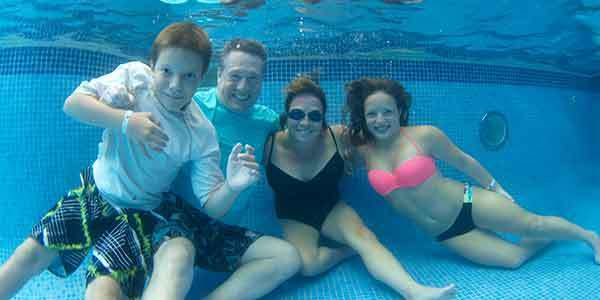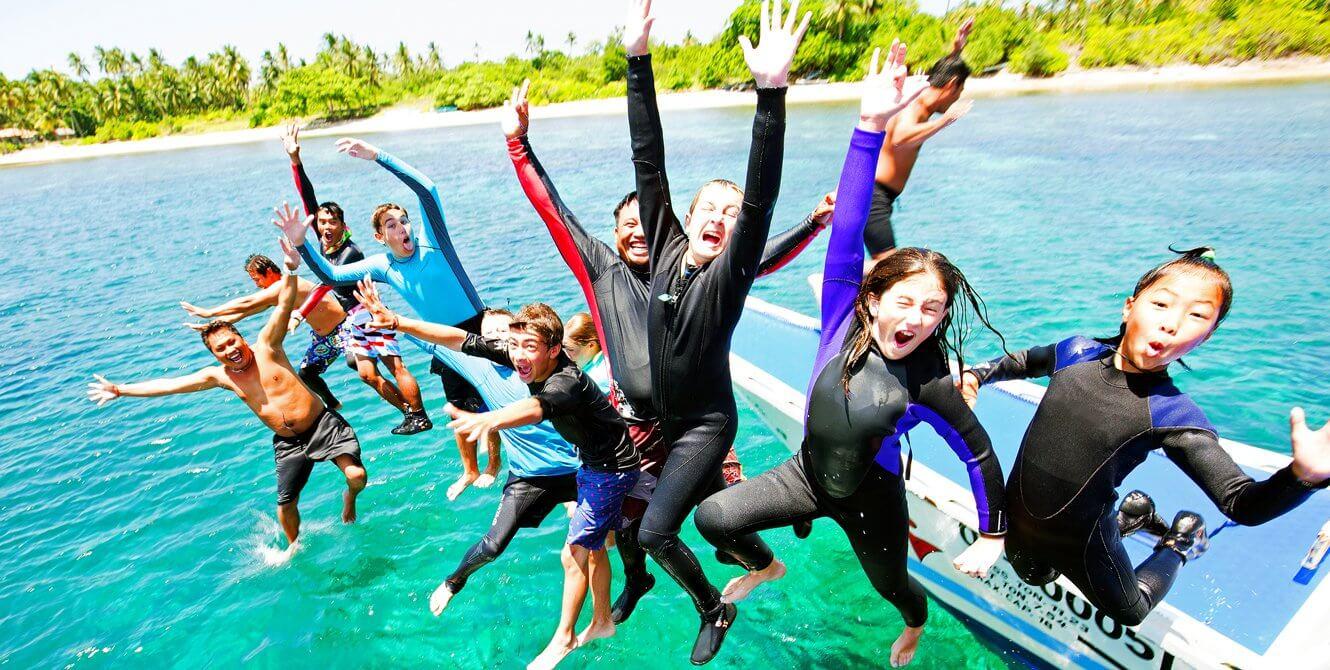Two-week diving vacations create better emotional, physical, and workforce health
Two-week diving vacations are the best way to heal from the long year of work. Margo and I have made a business out of taking vacations with Kids Sea Camp. We are experts in the business of taking time off. Along the way, we have observed a lot of people on their retreats from the normalcy of life over the years.

How our families act on a Kids Sea Camp vacations at the beginning is much different, then at the end. This year, Margo and I were able to get away for the Yap to Palau trip with about 12 other families or about 60 people. It was the normal wonderful Kids Sea Camp adventure, great diving, families, food, and lush accommodations.
But, it was more than that. I noticed a change in people’s attitudes at the beginning of the second week of the two-week vacation of island diving bliss. They lost sight of the work they needed to get done back at the office. They were swept up in the relaxing personal bliss of the Rock Islands and Yap.
Most of the days on were on dive boats for a good 30 to 45-minute travel to the dive site. Cell phone or internet just doesn’t seem to work well in the middle of the Pacific ocean. And, as far as diving, forget texting your sister back in Nebraska while you were on 60 feet hang dive surrounded by white tip sharks. Our vacations force you to unplug and relax regardless if you want or not.
By the end of the two weeks, most of the clients were calmer, much more peaceful, and fully relaxed, dare I say blissful. I decided when I had time to blog about how important I thought the two week period was, then I started doing research. I found out my personal bliss was a scientific study. Researchers had discovered what I realized in Yap and Palau—two weeks of not working is better than one.
Here are some facts from the American “Families and Work Institute” that could make you think differently about your vacation time:
The two-week vacation:
- The average number of paid vacation days employees have is 16.6 days. The average taken is 14.6 days.
- More than 36% did not plan to take their full time off.
- 37% take less than a 7-day vacation
- Only 14% take a vacation of 2 weeks
- On average employees say it takes three days for them to relax (That’s half the time of a seven-day vacation)
- The longer the vacation the better the psychological effect than a shorter one.
- Most people feel better about their lives and work after taking time off, and are more motivated to achieve their goals.
Other studies have shown
- 70% of healthcare costs are stressed related.
- 80% of all workers experience stress on the job.
- The human mind performs better for short intense periods of time and then a short break.
- Every 90 minutes our brains shift from an alertness state to a fatigued state.
- Time off allows for the mind and body to relax.
“Vacations make us happier than material things because they can’t be compared to anyone else’s experience. They create lasting memories that fire off multiple parts of the brain and, as a result, stick with us. It’s our memories that tell us we like our lives.” — Leaf Van Boven, the University of Colorado
“Getting away helps to distance yourself from stressful parts of your life. It can help restore your perspective, give you new viewpoints, and allow us to develop new strategies to cope.” — Dr. Mel Borins

